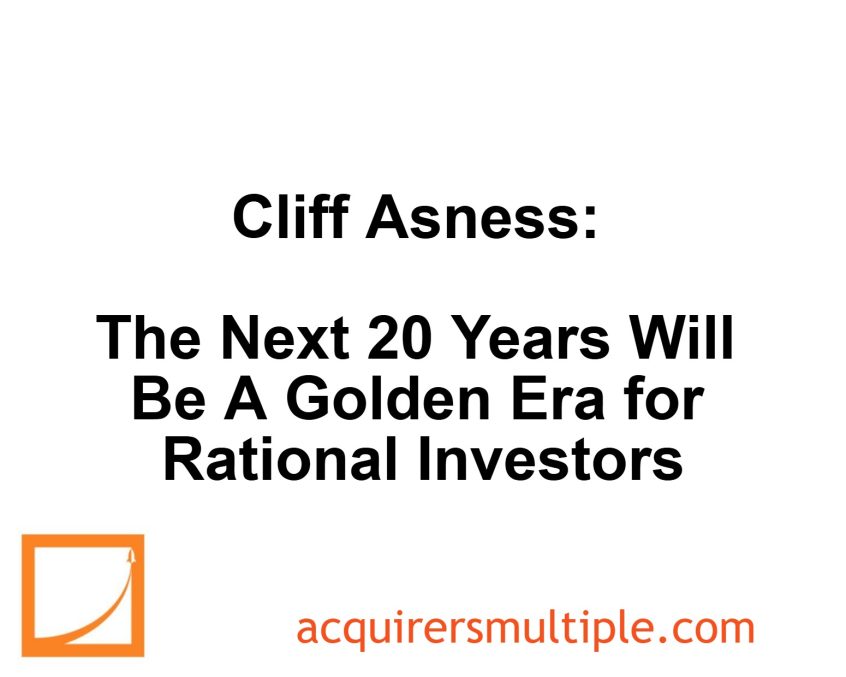In his latest interview with Excess Returns, Cliff Asness discusses the challenges and opportunities of rational investing, particularly during periods of extreme market inefficiency.
He argues that historical valuation changes are poor guides for the future, as they reflect shifts rather than fundamentals. While rational strategies often pay off, they require enduring painful periods of extreme inefficiencies.
Asness suggests markets are less efficient than before but not entirely inefficient, presenting greater potential rewards for disciplined investors.
He highlights a tradeoff: rational investing may yield higher long-term returns but will also test resilience through prolonged and extreme market fluctuations. Success depends on navigating these challenges effectively.
Here’s an excerpt from the interview:
Asness: History will give us a poor guide to the future because it’s really recording the valuation change, not something fundamental. So I think the wind has still net been in the face of what I call rational strategies.
So, you know, I look forward to the future cause I do believe in this. I do believe it’ll be more lucrative to be on the rational side, for at least the time being.
The caveat to that—and I’m very clear about this in the paper—is what inspired me to look at this were two wild, unprecedented episodes that were extremely painful for what I call rational investors, that ultimately paid off for them.
And so, if that is true and markets are in fact somewhat less efficient—not grossly inefficient, but less efficient than they used to be—yeah, there might be more money to be made from someone who can stick with rational investing. But it will also be harder to stick with during these periods, as we’ve seen.
If my theory is correct, you’ll have to fight bigger extremes that last for longer. And I say in the paper, no one might care what I think is fair—I’m just throwing you my opinion—but this strikes me as kind of fair.
Harder to do, but a bigger payoff if you can do it is, even within an inefficiency argument, some type of efficiency that strikes me as a fair tradeoff.
I steal a line from my ex-professor Ken French, who labels the market as—what does he say?—and he attributes this to someone else, but I’m giving it to him, that markets have an “efficient amount of inefficiency.” And we could get into that—that gets a little geeky.
But this strikes me as something that is fair going forward. I think the payoff to being the rational investor willing to take the other side of extremes will be bigger in the next 20 years than it’s been in the last 20 years. But it will occasionally test you more.
You can watch the entire interview here:
For all the latest news and podcasts, join our free newsletter here.
Don’t forget to check out our FREE Large Cap 1000 – Stock Screener, here at The Acquirer’s Multiple:



